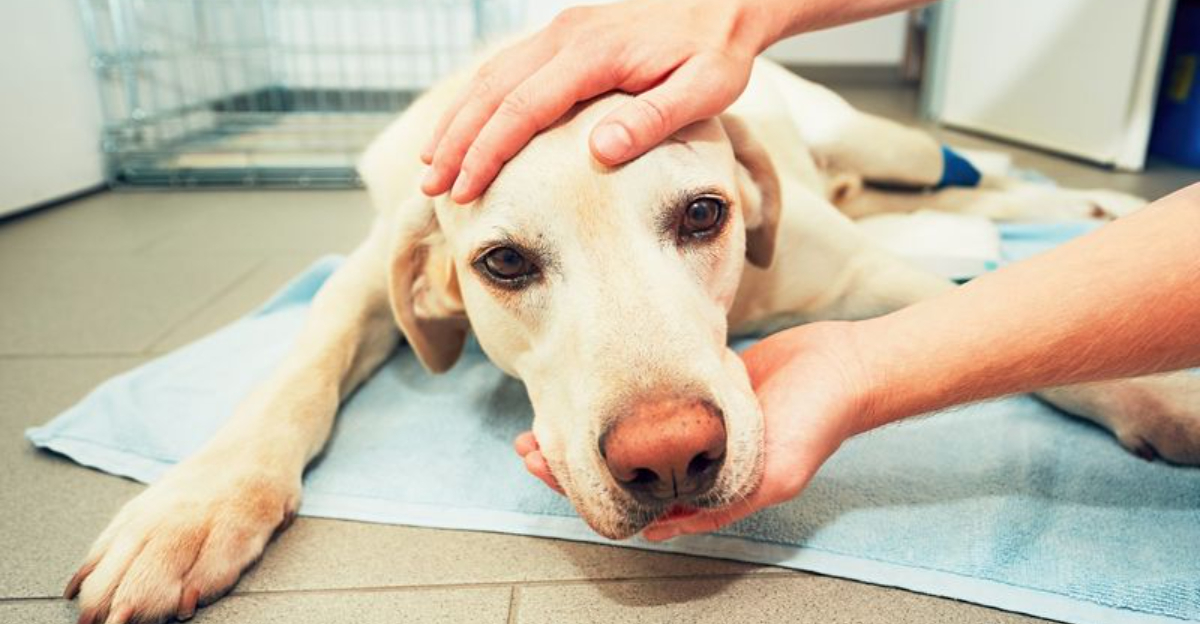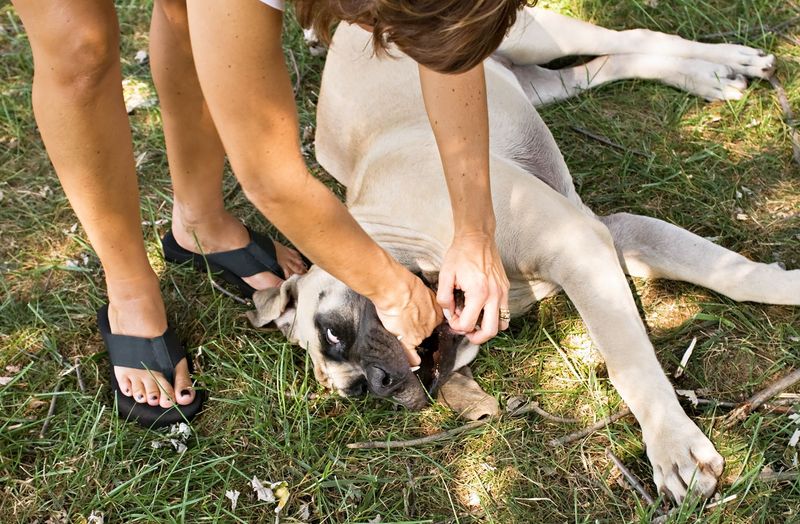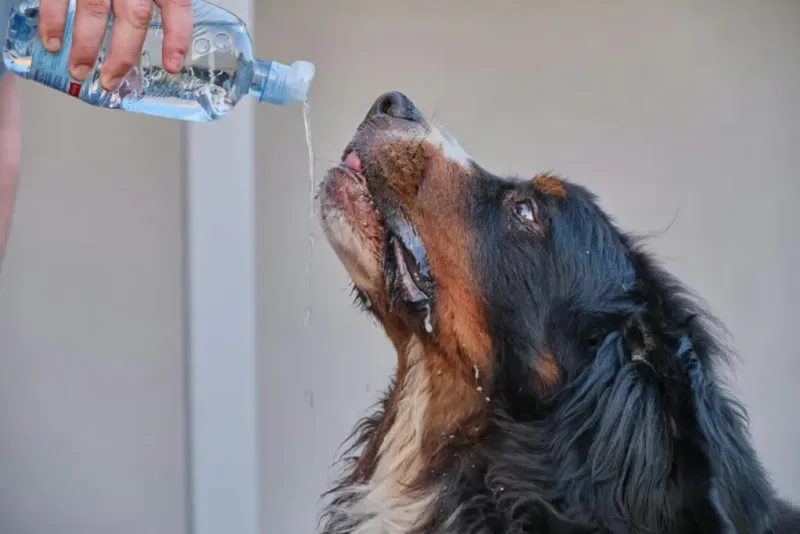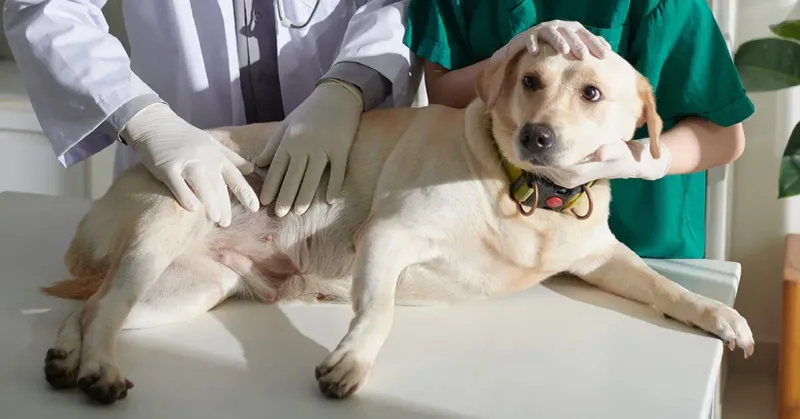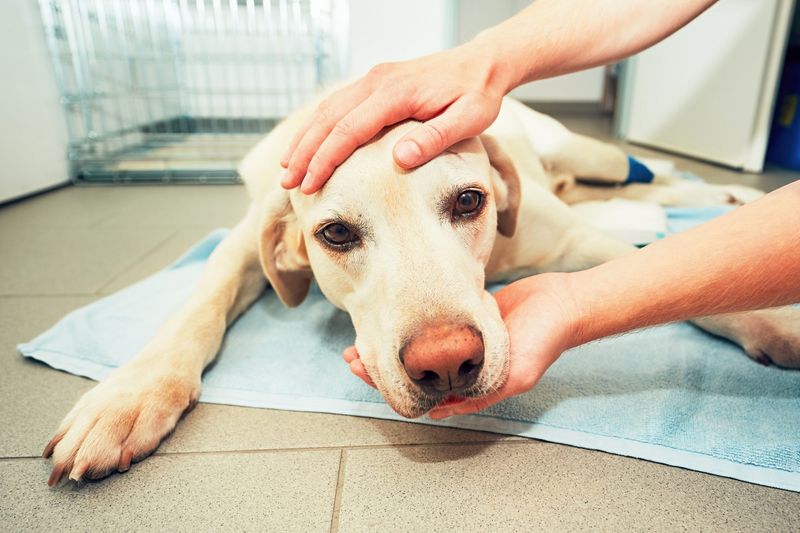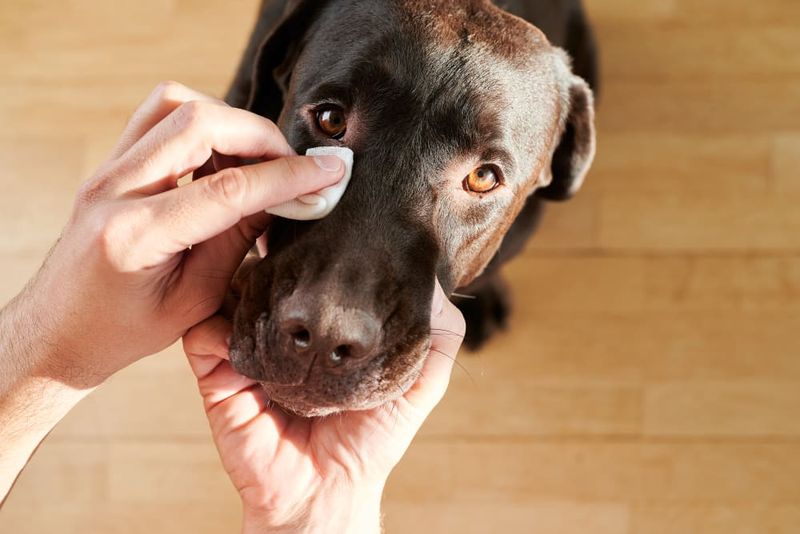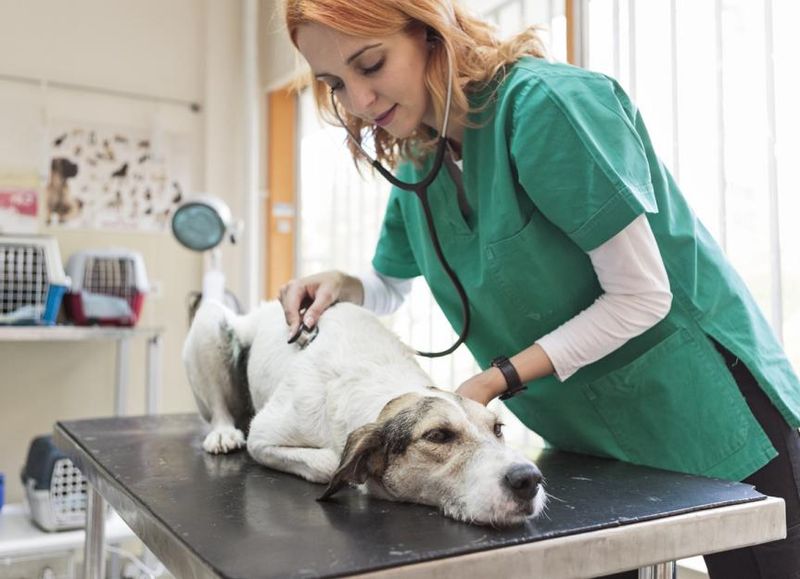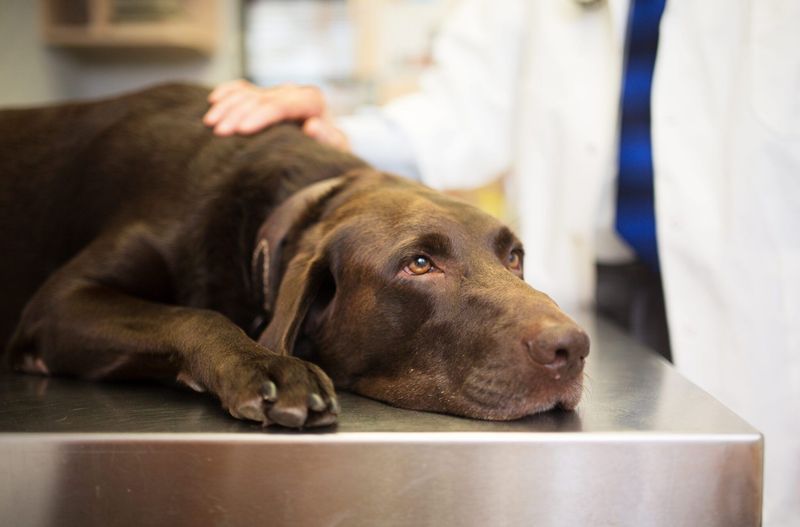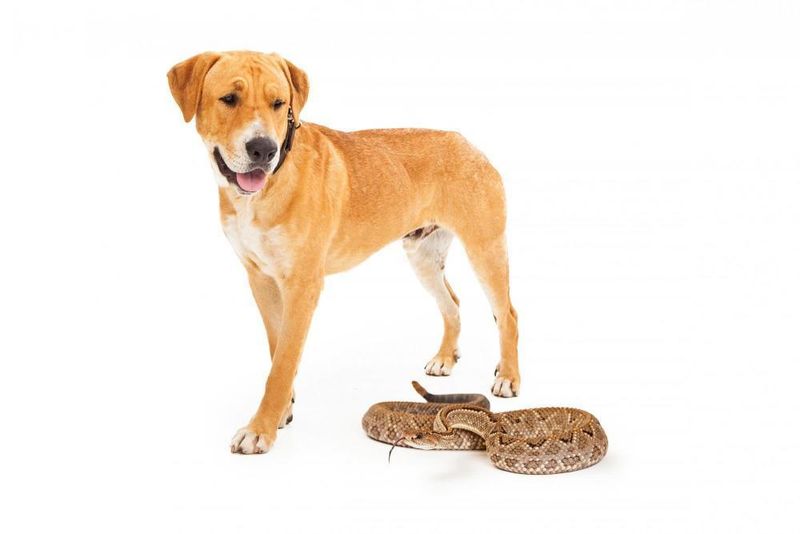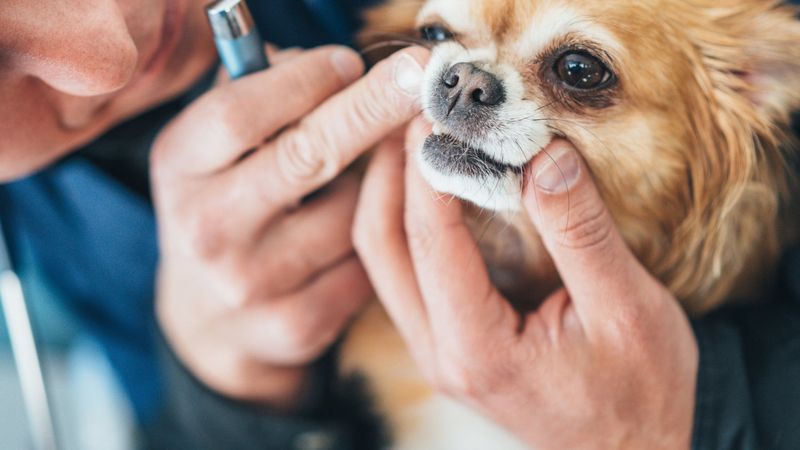As a dog owner, it’s crucial to be prepared for a variety of emergencies that could affect your beloved pet. Understanding these situations can not only save your dog’s life but also provide peace of mind. Here’s a comprehensive guide to 15 emergencies that every dog owner should understand.
Choking
A sudden gasp and pawing at the mouth can send any dog owner into panic mode. Choking in dogs may occur due to foreign objects like toys or food lodged in the throat. Quick action is essential.
First, try to gently remove the object if visible. If unsuccessful, perform the canine Heimlich maneuver. Being aware of these steps could prevent a tragedy.
Educate yourself on what your dog can safely chew. Knowing this can make the difference between a scare and a serious emergency. A prepared owner is a more confident one.
Heatstroke
A scorching summer day can quickly turn deadly for a dog left in a hot environment. Heatstroke is a serious risk that requires immediate attention. Dogs don’t sweat like humans; they cool off by panting.
Shade and hydration are key to prevention. Recognize symptoms such as excessive panting, drooling, or lethargy.
Move your dog to a cooler area and offer water. In severe cases, visit a vet. Understanding these steps during the hot months keeps your dog safe and healthy, avoiding the heartbreak of heatstroke.
Poisoning
Those curious noses can lead dogs into trouble. Poisoning is a common issue, with household items posing significant risks. Symptoms might include vomiting, drooling, or seizures.
If you suspect poisoning, contact a veterinarian immediately. Provide information about the substance involved.
Prevention is crucial; keep harmful items out of reach. Knowing what’s toxic to dogs can prevent accidental ingestion. This knowledge is your first line of defense against potential poisoning emergencies.
Bloat
Sudden stomach swelling is alarming. Bloat, or gastric torsion, involves the stomach twisting, leading to a life-threatening situation. Large, deep-chested breeds are particularly susceptible.
Recognize signs like restlessness and excessive drooling. Immediate veterinary care is vital. Delays can be fatal.
Avoid feeding large meals in one sitting and discourage rapid eating. With proper care and awareness, bloat can be managed. Knowing this condition could save your dog’s life in a critical moment.
Seizures
Seeing your dog having a seizure is frightening. Convulsions, disorientation, or drooling are possible symptoms. Epilepsy or toxins could be to blame.
Don’t attempt to restrain your dog. Instead, ensure the environment is safe and note the seizure’s duration.
Consult a veterinarian for underlying causes and future prevention. Managing seizures involves preparation and understanding. Your calm and informed response can provide comfort during these intense moments.
Fractures or Sprains
Playtime can sometimes lead to injuries like fractures or sprains. Dogs might show lameness, swelling, or reluctance to move.
Gentle handling is crucial to prevent further damage. Immobilize the affected limb with a temporary splint if possible, then seek veterinary care.
Safety during activities can minimize risks. Being prepared for sudden injuries ensures your dog receives immediate and proper care, reducing recovery time and discomfort.
Eye Injuries
The world is full of hazards for curious eyes. Eye injuries in dogs can result from scratches, foreign objects, or trauma. Redness, squinting, or discharge are warning signs.
Avoid self-treatment. Protect the eye using a clean cloth and contact a vet promptly.
Regular checks and maintaining a safe environment reduce risks. Vigilance in eye care keeps those expressive eyes bright and healthy.
Allergic Reactions
Allergies aren’t just a human concern. Dogs can react to various allergens like insect bites, foods, or pollen, causing swelling or hives.
Swift action is crucial. Administer an antihistamine if advised by a vet, and monitor for respiratory distress.
Identify and eliminate allergens from your dog’s environment to prevent future reactions. Understanding allergies make for a happier, itch-free pet.
Vomiting and Diarrhea
Digestive troubles are common and can signal underlying health issues. Persistent vomiting or diarrhea may lead to dehydration.
Offer bland foods and keep your dog hydrated. If the condition persists beyond 24 hours, a vet visit is necessary.
Regular vet check-ups and a balanced diet can mitigate risks. Quick and informed responses ensure your dog remains healthy and comfortable.
Urinary Blockage
Urinary blockages are a severe concern, especially in male dogs. Straining or inability to urinate signifies immediate attention is needed.
A veterinarian can diagnose and alleviate the blockage. Delay in treatment may cause kidney damage or even death.
Monitor urination patterns and ensure adequate hydration. Early recognition and action prevent complications, ensuring your dog’s health and comfort.
Insect Bites and Stings
Nature offers beauty, but also risks like insect bites. Dogs may face swelling, itching, or pain from stings.
Apply a cold compress to reduce swelling and contact a vet if symptoms worsen. An antihistamine might be necessary.
Awareness of your dog’s surroundings and quick response to stings ensure a speedy recovery, keeping playtime enjoyable and safe.
Hypoglycemia
Tiny breeds and diabetic dogs are prone to drops in blood sugar. Lethargy or weakness are indicators of hypoglycemia.
Immediate sugar intake, like honey, can stabilize the condition until veterinary care is reached.
Awareness and preparation are key. Regular vet consultations and proper dietary management are essential in preventing these incidents, ensuring your dog’s vitality and happiness.
Snake Bites
Exploration can lead to dangerous encounters with snakes. Bites result in swelling, pain, or even shock.
Keep your dog calm and immobilize the area. Seek immediate veterinary assistance. Time is crucial.
Awareness of local snake habitats and keeping dogs on a leash in such areas prevents encounters. Preparation and swift action can save lives in snake-prone regions.
Frostbite
Winter’s chill presents frostbite risks. Ears, tails, and paws are susceptible in freezing weather.
Gradually warm affected areas and seek veterinary care. Avoid direct heat, as it can worsen the condition.
Protection during cold weather, like booties and coats, prevents frostbite. Understanding these precautions keeps winter adventures safe and enjoyable.
Collapsed Trachea
Toy breeds may suffer from a collapsed trachea, leading to coughing or difficulty breathing.
Avoid collars; opt for a harness and visit a vet for management advice. Quick action prevents distress.
Knowledge and vigilance ensure a quality life for dogs prone to this condition, supporting their comfort and wellbeing.
